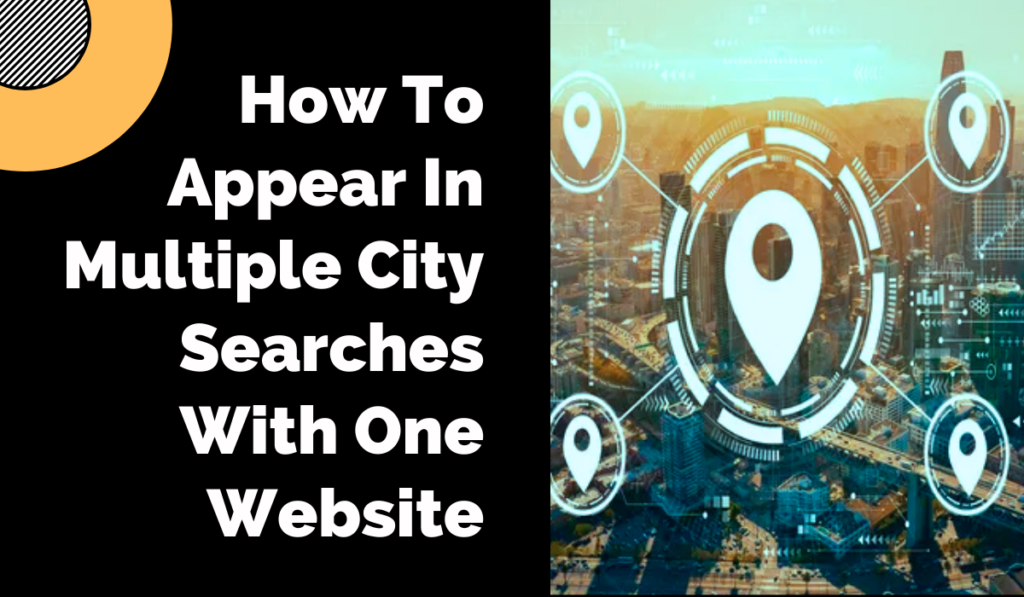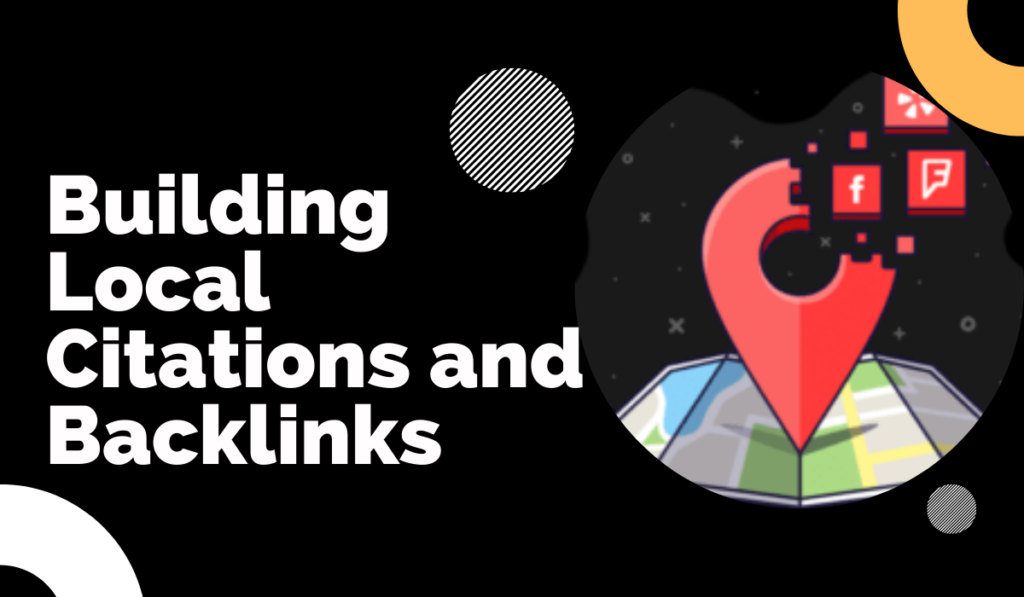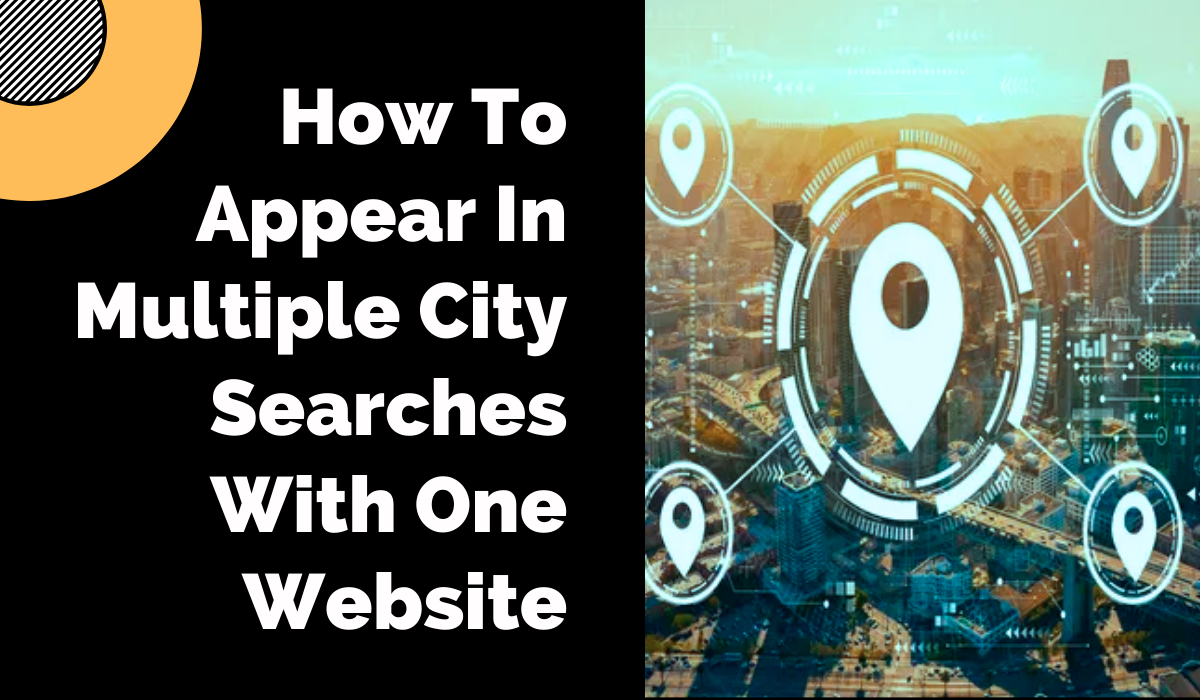
Are you a local business owner looking to expand your reach and attract customers from multiple cities? In today’s digital age, having a solid online presence is crucial for success. However, ranking your business in various locations with a single website can take time and effort.
You might find yourself wondering:
- How can I appear in multiple city searches without creating separate websites for each location?
- Is it possible to target different cities while maintaining a cohesive online presence?
- What strategies should I employ to optimize my website for local search across various towns?
Fear not! In this comprehensive guide, we’ll dive deep into the world of multi location SEO and provide actionable insights to help your business thrive in multiple markets. Get ready to unlock the secrets of dominating local search results and watch your customer base grow exponentially.
Understanding Local SEO for Multiple Locations
Before we dive into the nitty gritty of how to appear in multiple city searches with one website, let’s take a step back and understand the fundamentals of local SEO. Traditional SEO focuses on improving a website’s visibility on a national or global scale, while local SEO prioritizes appearing in search results for location specific queries.
When a potential customer searches for a product or service near them, search engines like Google use different ranking factors to determine the most relevant local businesses to display. These factors include:
- Proximity: How close is your business to the searcher’s location?
- Relevance: How well does your business match the search query?
- Prominence: How well known and reputable is your business in the local community?
You’ll need to optimize your website for each location to rank in multiple cities while ensuring a seamless user experience. This involves creating location specific pages, building local citations, and leveraging Google Business Profile (formerly Google My Business) to establish a strong presence in each market.
By understanding the intricacies of local search and tailoring your website to cater to different cities, you’ll be well on your way to dominating local search results across multiple locations.
Optimizing Your Website Structure for Multi Location SEO
Now that you understand the importance of local SEO for multiple locations, it’s time to optimize your website’s structure to ensure you can appear in various city searches with one website. A well organized website hierarchy helps search engines understand your content better and provides a seamless user experience for potential customers.
Creating a Clear Hierarchy for Location Pages
Create a dedicated page for each location you serve to rank in different cities. These location pages should be easily accessible from your main navigation menu and follow a clear hierarchy. For example:
- Home
- Locations
- City 1
- City 2
- City 3
This structure helps search engines and users quickly find the most relevant information for their location.
Developing Unique, Localized Content for Each City Page
When creating location pages, avoiding duplicating content across multiple pages is crucial. Each city page should have unique, localized content that targets location specific keywords and provides valuable information for potential customers in that area. Consider including:
- Local address, phone number, and business hours
- Unique descriptions of your products or services tailored to the local market
- Testimonials or reviews from local customers
- Local news, events, or partnerships
Implementing a User Friendly Navigation System
Ensure your website’s navigation is intuitive and user friendly. Use clear, descriptive labels for your location pages, and consider implementing breadcrumb navigation to help users quickly navigate between different location pages.
Utilizing Dynamic Content Based on Visitor Location
To provide a more personalized experience, consider dynamic content that changes based on the visitor’s location. For example, you could display the nearest store location, local promotions, or location specific imagery. This enhances user experience and signals to search engines that your content is relevant to the user’s location.
Optimizing URL Structures for Location Pages
When creating URLs for your location pages, use a clear and consistent structure that includes the location name. For example:
- www.example.com/locations/city 1/
- www.example.com/locations/city 2/
This helps search engines understand the hierarchy and relevance of your location pages, ultimately improving your chances of appearing in multiple city searches with one website.
By implementing these strategies, you’ll create a strong foundation for your multi location SEO efforts and be well on your way to ranking in multiple cities with a single website.
Leveraging Google Business Profile for Local Rankings
Google Business Profile (GBP) is a powerful tool for businesses looking to improve their visibility in local search results. By claiming and optimizing your GBP listing, you can significantly increase your chances of appearing in multiple city searches with one website.
Claiming and Verifying Your Business on Google Business Profile
To get started, claim your business in GBP if you still need to. This process involves verifying your business information, such as your name, address, phone number (NAP), and website URL. Consistency is critical here, as discrepancies can confuse search engines and harm your local rankings.
Optimizing Your Profile with Accurate Information and Photos
Once you’ve claimed your GBP listing, optimize it by providing accurate and detailed information about your business. This includes:
- Business description
- Categories
- Operating hours
- Photos of your business, products, or services
Ensure to include relevant location specific information and keywords in your business description to help search engines understand the context of your business and its relevance to local searches.
Encouraging Customer Reviews and Responding to Them
Reviews play a significant role in local search rankings. Encourage your customers to leave reviews on your GBP listing and respond to them promptly, whether positive or negative. This shows search engines that you value customer feedback and actively engage with your audience.
Strategies for Appearing in Google’s Local Map Pack
The Local Map Pack is a coveted spot in Google’s search results, displaying the top three local businesses for a given query. To increase your chances of appearing in the Local Map Pack, focus on:
- Building local citations (mentions of your business name, address, and phone number on other websites)
- Ensuring consistency in your NAP information across all online platforms
- Optimizing your website for mobile devices
- Regularly updating your GBP listing with fresh content, such as posts and photos
By leveraging the power of Google Business Profile and implementing these strategies, you’ll be well equipped to rank in multiple cities and attract more local customers to your business.
Enhancing Local SEO with On Page Optimization
On page optimization is a crucial aspect of local SEO, especially when targeting multiple cities with one website. By incorporating local keywords and semantic entities into your website’s content, you can send strong signals to search engines about your business’s relevance to specific locations.
Incorporating Local Keywords and Semantic Entities in Content
When creating content for your location pages, include local keywords and phrases that potential customers might use when searching for businesses like yours. For example, if you’re a plumber serving multiple cities, you might use words like plumber in [city name] or best plumbing services in [city name] throughout your content.
In addition to keywords, incorporate semantic entities words or phrases closely related to your main keywords. These could include:
- Local landmarks
- Neighborhoods
- City specific events or attractions
Using semantic entities helps create a more comprehensive and contextually relevant picture of your business for search engines.
Using Schema Markup for Local Business Information
Schema markup is a type of structured data that helps search engines better understand the content on your website. By implementing local business schema markup on your location pages, you can provide clear, machine readable information about your business, such as:
- Business name
- Address
- Phone number
- Operating hours
- Geo coordinates
This information can enhance your search engine results pages (SERPs) with rich snippets, increasing your visibility and click through rates.
Optimizing Title Tags, Meta Descriptions, and Header Tags
For each location page, craft unique and compelling title tags, meta descriptions, and header tags (H1, H2, etc.) that include your primary local keywords. These elements serve as necessary signals to search engines about the content and relevance of your pages.
Implementing a Strong Internal Linking Structure
A well planned internal linking structure helps search engines understand the hierarchy and relationships between your website’s pages. When linking between your location pages, use descriptive anchor text that includes relevant local keywords.
Ensuring Mobile Friendliness and Fast Page Load Times
With most local searches occurring on mobile devices, ensuring your website is mobile friendly and loads quickly is essential. Use responsive design techniques and optimize your images, scripts, and other assets to improve page load times. This enhances user experience and positively impacts your local search rankings.
Implementing these on page optimization strategies will create a strong foundation for your multi location SEO efforts and improve your chances of appearing in multiple city searches with one website.
Building Local Citations and Backlinks

When it comes to local SEO, building local citations and backlinks is just as important as optimizing your website. Citations and backlinks are powerful signals to search engines that your business is legitimate, trustworthy, and relevant to specific locations.
The Importance of Consistent NAP (Name, Address, Phone) Citations
A local citation is any mention of your business’s name, address, and phone number (NAP) on other websites. Consistency is vital when building citations, as any discrepancies in your NAP information can confuse search engines and potentially harm your local search rankings.
Some familiar places to build local citations include:
- Online business directories (e.g., Yelp, Yellow Pages)
- Industry specific directories
- Local Chamber of commerce websites
- Local news and media outlets
Submitting Your Business to Local Directories and Data Aggregators
Submit your business to local directories and data aggregators to ensure consistent NAP information across the web. Data aggregators collect and distribute business information to various online directories and platforms.
Some popular data aggregators include:
- Foursquare
- Factual
- Infogroup
- Acxiom
Submitting your business information to these platforms can help ensure that your local citations remain consistent and accurate across multiple sources.
Strategies for Earning High Quality, Locally Relevant Backlinks
In addition to local citations, building high quality backlinks from locally relevant websites can significantly boost your local search rankings. Some strategies for earning local backlinks include:
- Partnering with local organizations and charities
- Sponsoring local events and teams
- Guest posting on local blogs and news sites
- Participating in local forums and online communities
When building backlinks, focus on quality over quantity. A high quality backlink from a reputable local website can be more valuable than dozens of low quality links from irrelevant sources.
Utilizing Local Partnerships and Sponsorships for Link Building
Partnering with other local businesses and organizations can be a highly effective way to build local backlinks and increase your visibility in the community. Look for opportunities to collaborate with complementary businesses, such as:
- Cross promoting each other’s products or services
- Co hosting local events or workshops
- Offering joint discounts or promotions
By leveraging these partnerships and sponsorships, you can earn valuable backlinks, build relationships with other local businesses, and establish your brand as a trusted presence in the community.
By focusing on building local citations and backlinks, you’ll strengthen your business’s online presence and improve your chances of appearing in multiple city searches with one website.
Tracking and Measuring Success
As with any SEO strategy, tracking and measuring the success of your multi location SEO efforts is crucial for making data driven decisions and continually improving your rankings. By monitoring key performance indicators (KPIs) specific to local search, you can gain valuable insights into how well your website performs in different cities and identify areas for improvement.
Some crucial local SEO KPIs to track include:
- Local search visibility (rankings for location specific keywords)
- Organic traffic from local searches
- Clicks and calls from Google Business Profile
- Conversion rates for local landing pages
To measure these KPIs, utilize tools like Google Analytics, Google Search Console, and rank tracking software specifically designed for local SEO. Regularly review your data and adjust your strategy as needed to ensure continuous growth and success in multiple city searches with your single website.
Conclusion
Congratulations! You now have a comprehensive understanding of how to appear in multiple city searches with one website. By implementing the strategies outlined in this guide, you can effectively optimize your website for local search, improve your visibility in different cities, and attract more local customers to your business.
Remember, the key to success in multi location SEO is consistency, relevance, and continuous improvement. Stay committed to providing valuable, location specific content, building local citations and backlinks, and monitoring your performance to ensure long term growth and success.
Are you ready to take your local SEO to the next level? Check out our in depth courses at img.courses to learn advanced strategies and tactics for dominating local search results across multiple cities and locations. Our expert led courses will give you the knowledge and tools you need to outrank your competitors and grow your local business. Sign up today and start your journey to multi location SEO mastery!
FAQs
Q. How can I create unique content for each city page without duplicating information?
When creating content for multiple city pages, focus on highlighting the unique aspects of each location, such as local landmarks, events, or customer testimonials. While some information may overlap, strive to provide location specific details that make each page stand out. Consider collaborating with local influencers or businesses to generate unique, engaging content for each city.
Q. What are the most important local SEO ranking factors to focus on?
The critical local SEO ranking factors include:
- Google Business Profile optimization
- Local citations and NAP consistency
- On page optimization with local keywords and content
- Local backlinks from reputable websites
- Reviews and ratings
- Mobile friendliness and page load speed
Q. How does Google determine which businesses to show in the Local Map Pack?
Google considers several factors when deciding which businesses to display in the Local Map Pack, such as:
- Proximity to the searcher’s location
- Relevance to the search query
- The prominence of the business (based on backlinks, citations, and online reputation) Optimizing your Google Business Profile and building local citations can improve your chances of appearing in the Local Map Pack.
Q. How can I encourage customers to leave reviews on my Google Business Profile?
To encourage customers to leave reviews, consider:
- Directly asking satisfied customers to leave a review.
- Including a link to your Google Business Profile in email signatures and receipts
- Offering incentives, such as discounts or loyalty points, for leaving a review
- Responding to all reviews, both positive and negative, to show that you value customer

